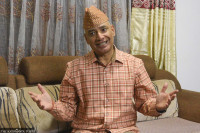Interviews
Oppressed classes felt betrayed, other sections didn’t accept Maoists
A force mightier than the Maoists may emerge to take the space it occupied in the past.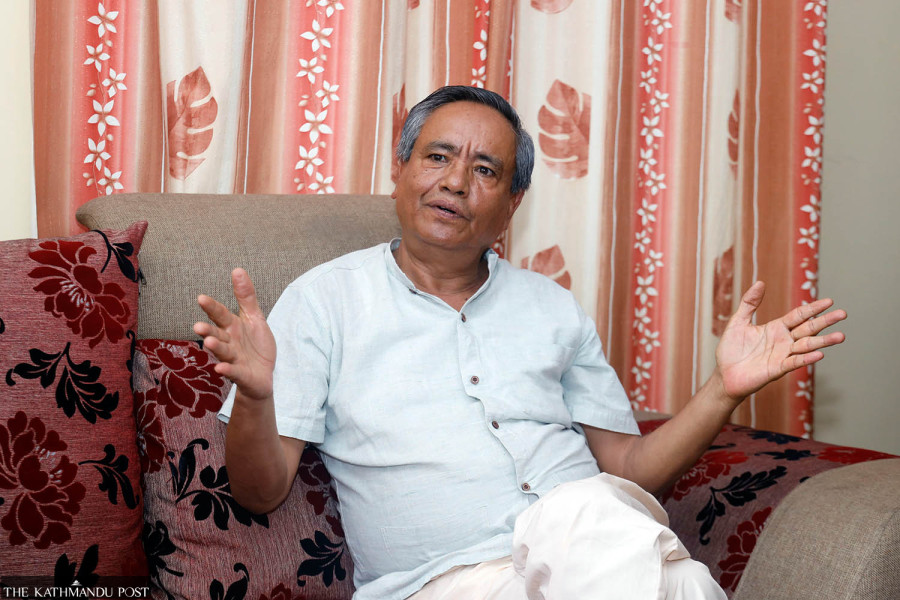
Thira Lal Bhusal
The July 1 midnight deal between the Nepali Congress and the CPN-UML, the first and the second largest parties in the federal lower house respectively, turned national politics on its head. Pushpa Kamal Dahal was thrown out as prime minister and KP Oli assumed the country’s leadership. The Post’s Thira Lal Bhusal asked Maoist Centre leader Ram Karki, who has cultivated an image of a rebel within the party, on his reading of the event.
How do you see the CPN-UML’s rebuffing of the CPN (Maoist Centre) and formation of a new government with the Nepali Congress?
If you see it from the perspective of those who believe in parliamentary democracy, this is wrong. In the system, the largest party is believed to have the public mandate to run the government and the second-biggest to be the main opposition. A weak opposition makes for a weak parliamentary system. The system isn’t an ideal one for us [communists]. The two parties have made a mockery of the system they advocate for.
Why didn’t the Maoist party that championed progressive agendas implement them when in government?
We should admit that we lost the moral authority to implement and execute those agendas. We could have implemented those ideals by mobilising peasants, working-class groups, and people from oppressed communities, but our grip and connection with them have loosened.
Why did the party and the leadership distance itself from the working class?
The state has two arms—coercive and persuasive. The Maoists succeeded in using coercive force. But you can’t use this all the time. One has to use persuasive force most of the time. When we joined mainstream politics, we were the leading political force. We were in power. At the time we should have changed our education sector. For that, we should have worked on our curriculum and trained teachers. Our educational system is guided by patriarchal and feudal values. We need to orient people to questioning and following science. The party couldn’t do so. Had we done so, we would now have a critical mass with us.
The Maoist leaders lost the moral ground. When you preach lofty ideas, the public won’t listen to you. They instead watch your lifestyle. Earlier, the Congress and the UML leaders, who were outsiders in Kathmandu, got ‘polluted’ when they worked in collusion with the capital’s elites. We, too, got ‘polluted’ by hobnobbing with the two parties. The working class and oppressed communities that had helped the Maoist party fight the state felt betrayed. The leaders and the masses are separated now. The Maoist party was the true leader of the progressive agenda such as inclusion, federalism, secularism and republicanism. These ideas are still valid, but the party failed to honour them. It failed because it lost its strength and disconnected itself from the class it fought for. It tried to become the leader of all people. The oppressed communities felt betrayal, while the other classes didn’t accept the party because of our past.
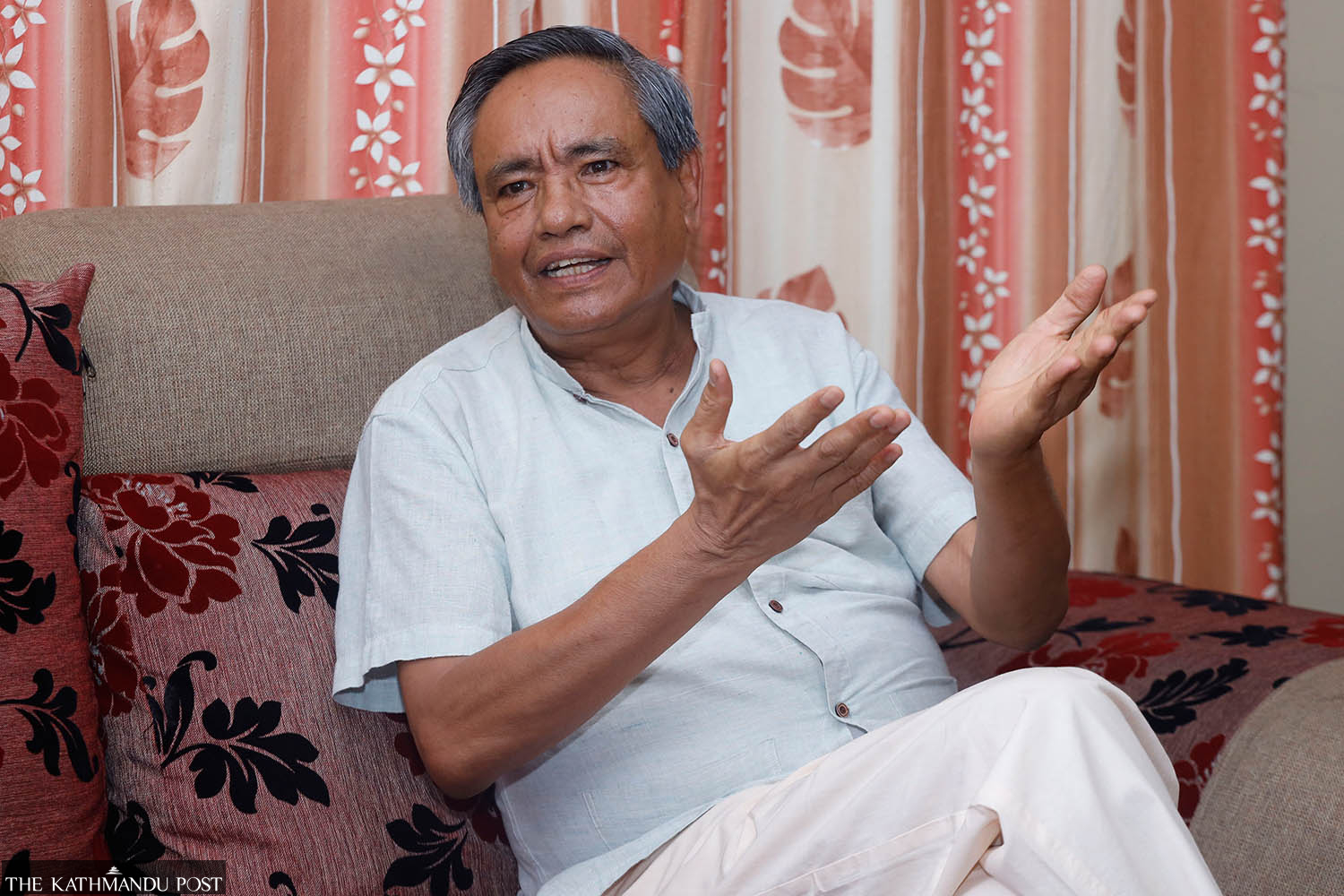
Do you think the Congress and the UML will try to undermine progressive agendas enshrined in the new constitution?
They have also sold lofty ideas to the people in the past. A counter-revolution under the two parties’ leadership is not easy. Their rank and file won’t accept it. The Congress, in fact, is not only a political party but a collective where you find radical Hindus as well as hardcore secularists. It stays strong as long as it works as a unified force of various groups. But when it imitates communists and tries to be a rigid cadre-based party, it loses its space and strength. So the Congress can’t lead a counter-revolution against progressive ideas. Counter-revolution is not easy, but the reactionary forces have certainly succeeded in regaining their space.
Observers and politicians from rival parties claim that the Maoist Centre is now in an existential crisis. Do you think it can make a comeback?
More importantly, the space that used to be occupied by the Maoist party is now left unoccupied.
Can’t the UML or other forces make inroads into that space?
The UML is a tried and tested force. Even the Maoist Centre is now described as a tested force. How can older forces enter that space? A force mightier than the Maoists can emerge. As a Maoist party member, I still vow to rejuvenate and revive the Maoist Centre. I am trying to convince my fellow comrades to do that. But my voice hasn’t prevailed. I have been presenting my papers in the party’s general conventions. We still have a strong belief that sooner or later, we will prevail because we are raising valid issues.
Various leftist groups have at various times tried to create a strong, united left political force in Nepal. Do you think ideas like socialism and communism still attract the youth?
Some rebel voices within our parties take some initiatives to raise our collective voice to build pressure on party establishments. But this has been limited to theoretical debates and failed to translate into politics. A theory or philosophy is like an iron plate, while crafting a tool from that iron is politics. We haven’t been able to transform our ideas into political action. If a leader floats a political agenda, the people first study the leader’s integrity. If a leader with a strong moral authority proposes an idea, people trust and follow it. If Gandhi was wearing a suit and telling people to wear handwoven khadi, Indian people wouldn’t have followed him. Similarly, if Mao was using clothes, watches and vehicles from developed countries while preaching for simplicity, Chinese people wouldn’t have followed him.
Our people don’t listen to our leaders because they don’t see the leaders walk the talk. Youths are always attracted by adventurism; they are receptive and sensitive to certain incidents. Now, they aren’t following us because they don’t find any adventure and newness in our ideas. If we do some soul searching and correct ourselves, the Maoist Centre still can lead the process to complete the unfinished progressive agendas.
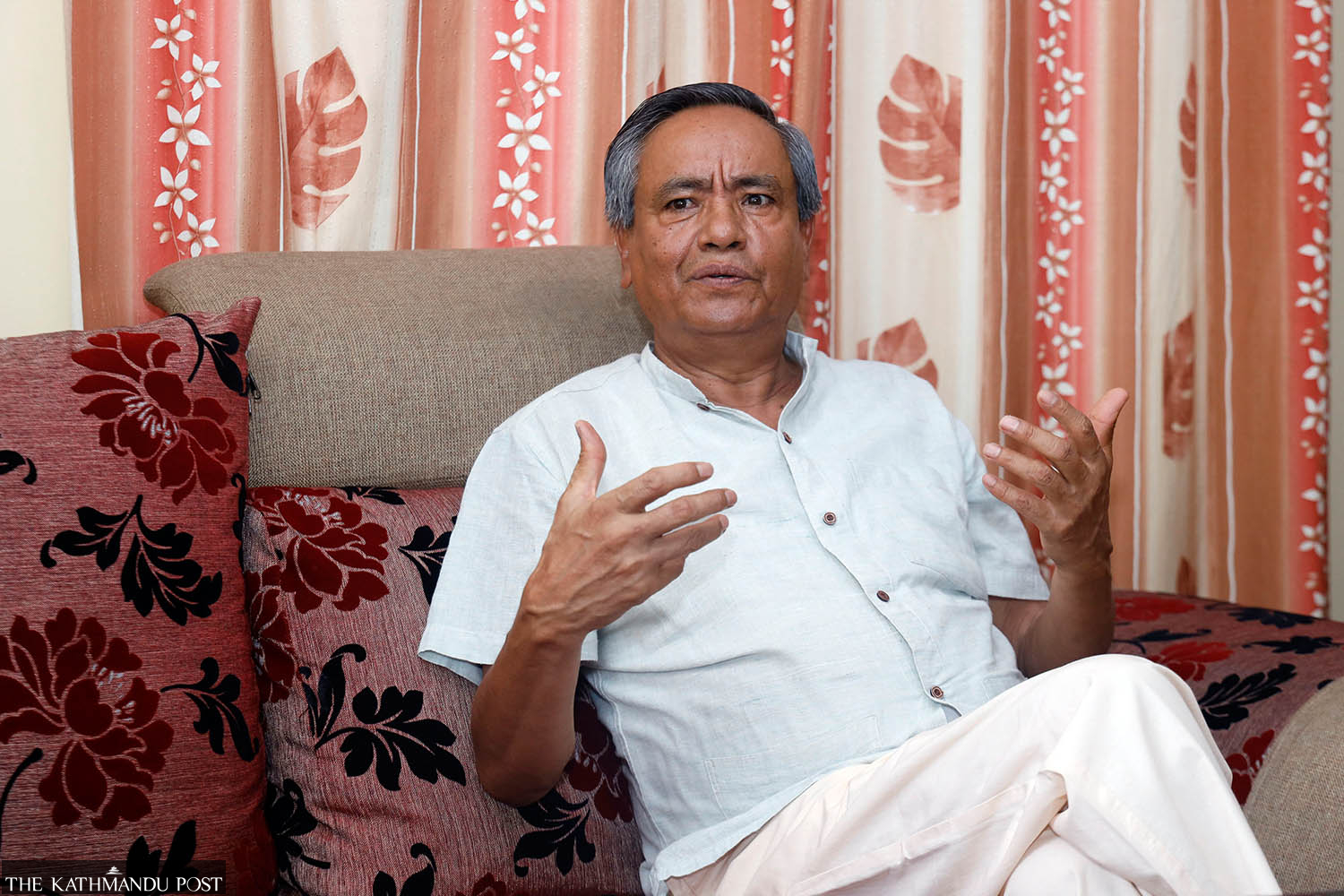
Is that possible under the current Maoist leadership that has lost its credibility while staying in power for long? Will the people trust them?
People will judge them based on their actions. If the Maoist leaders were more credible, there would be no space for the Congress and UML to come together. Either one or the other force would seek the Maoist party’s support. They wouldn’t have dared to ignore the Maoist party that led progressive issues in the recent past. They were emboldened because of the Maoists’ diminishing influence. Therefore, we have to correct ourselves in practice.
You said that the classes and communities the Maoist party used to lead now have no leader. Can new outfits occupy that space?
The traditional parties—the Congress, the UML and the Maoist Centre–don’t have any strategic vision on where they want to see the country in 20 years. The new forces are worse. They hit a ball and wherever it reaches, shift the goalpost there. They carry the goalpost with them. New forces with such visions can’t replace old parties. History shows that Nepal has witnessed political upheavals in a gap of 10-15 years. In the past such tsunamis have changed the political systems. Now we have seen sparks of movements but they are scattered. New forces need an ideological weapon. The Maoists forgot to sharpen their ideological weapon over time by holding ideological debates and upgrading themselves. Another is intra-party democracy. A political party that doesn’t practise intra-party democracy can’t enforce democracy in society.
From the perspectives of intra-party democracy, the Maoist Centre is probably the most undemocratic of major political forces. Why?
In the Congress, you are free to speak, but you don’t have a say in execution. Communist parties are too centralised. The structure conceptualised around a century ago in the context of wars and other contexts hasn’t been updated. Even new parties are run by the party chiefs imitating the anomalies of traditional forces. A leader is praised if s/he takes immediate decisions, gets them endorsed from the party committees and implements them swiftly. Those who say they have to first discuss the issue in party committees are described as weak. Such a trend is killing intra-party democracy.
Do you think the Congress-UML coalition will succeed?
A coalition between the parties that don’t even have a common minimum programme is a coalition of opportunists. They don’t have a moral ground either. On ideological grounds, the Congress still cites the late BP Koirala because no other leader of the party has worked on the theoretical front for decades. Such is also the situation with communists. They still cite the theoretical works of the late Pushpa Lal Shrestha. The current alliance is not a principled one, it’s a collaboration between opportunists. So, don’t expect anything better.
How do you evaluate the outgoing government?
It did nothing for the class it represents. The prime minister’s secretariat might have prepared a list of ‘100 important achievements of the government’. But what is the government’s priority? It failed to even give skills to those going abroad in search of work. They would have found better work had we given them valuable skills. Not only the outgoing one but all the previous governments have failed.
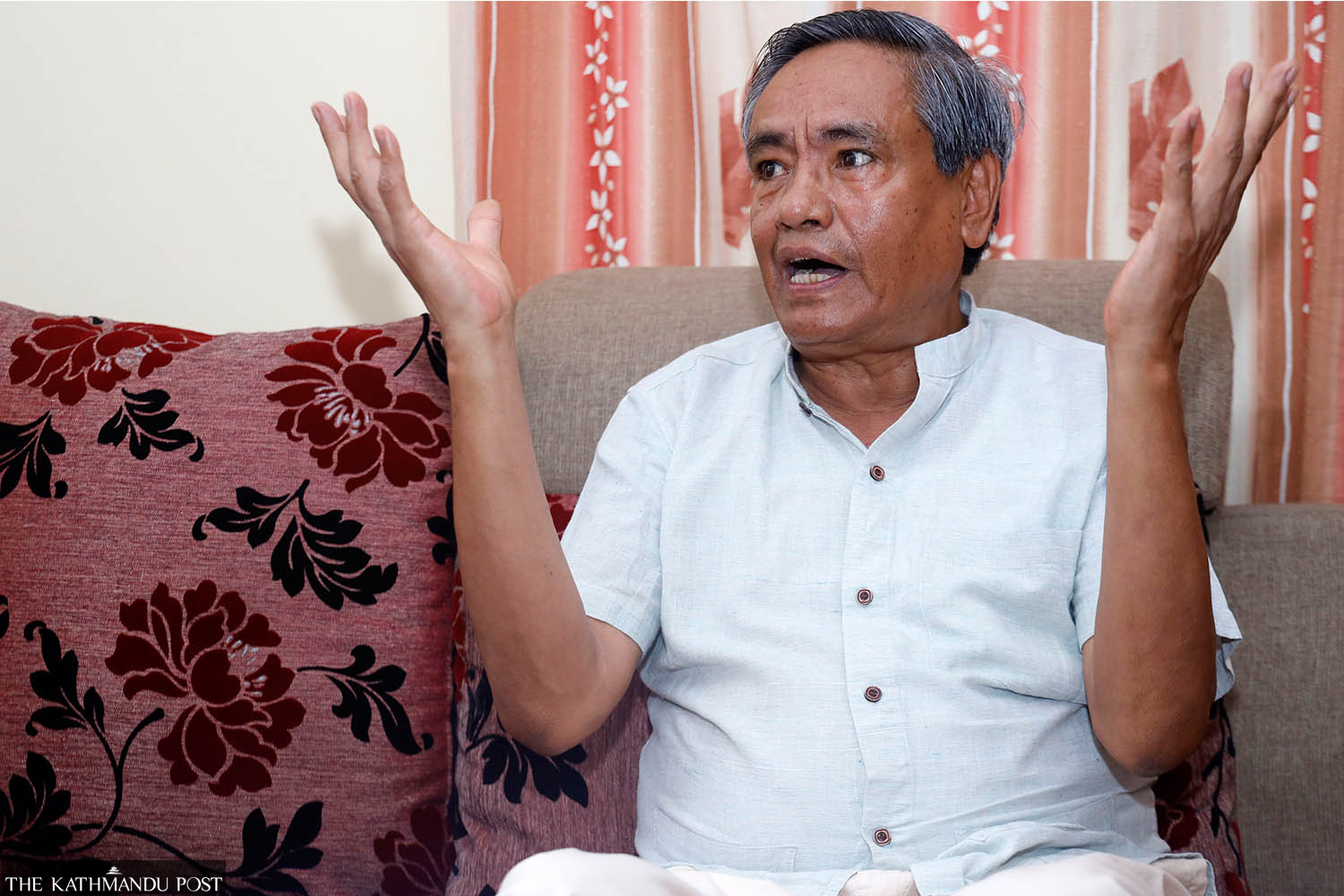
The Congress-UML alliance has said it wants to review the constitution and amend the charter when necessary. How do you see this idea?
This will be backtracking from the present constitutional roadmap. It is dishonest to create hindrance in implementing the federal system and then suggest the system is a burden. Such moves would give space to those who want to raise questions on republic and secular systems. There is a strong faction that lobbies for Hindutwa in the Nepali Congress. It is no secret that the Congress and the UML were not in favour of republic, secular and federal systems. But later, they rode the popular wave. But they have still not internalised it, and there are some regressive elements in both the parties but the people, who have come too far, won’t backtrack.
Don’t you think the coming together of Congress and UML may ensure political stability?
Instability is okay for me because stability may not necessarily be good for a country like ours. See, a single leader has been ruling a party continuously for over 30 years. What if they rule the country in a similar way? Look at some countries where a single leader has ruled for decades. The current arrangement is better than such stability.
Will the Maoist party chairman and prime minister, who didn’t even appoint a minister from a Dalit community, have the moral authority to again champion the agenda of the oppressed?
Appointing a minister is again an ornamental approach to appease certain communities. What we should do is ensure the participation of oppressed communities in policymaking.
But party chair Dahal may again seek ways to get back to power. Will he pay attention to these issues?
We should stop this chase for power at all cost. We will say this in our party meetings. We should accept the reality that we have just 32 seats and so we won’t get sufficient space to implement any important programmes even if we join the government.
The way your party chief remained in power for over 18 months using various tactics, was it right?
If you see it through a parliamentarian’s lens, it looks quite smart. If you see it through a Marxist perspective, just becoming a prime minister is futile if you can’t implement your policies and strengthen republicanism and participatory democracy.




 14.12°C Kathmandu
14.12°C Kathmandu





